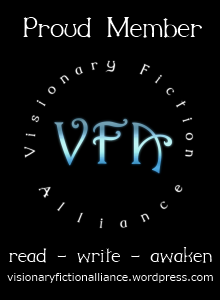|
"I am as God created me" is the title of three separate A Course in Miracles Workbook lessons (W94, W110, W162). The idea also features in other lessons (e.g., W219: "I am not a body. I am free. For I am still as God created me" and W260: "Let me remember God created me".)
We need these reminders, for when we forget that God created us, we forget What we Are. And when we forget What we Are, we forget What we have within ourselves – Love, Peace, Joy. That forgetfulness leads us to pursue a futile journey to find those things outside our Self. Remembering that we are as God created us is a step in coming to our senses and returning to our True Home. In this guided meditation for the Miracle Network UK, I reflect on the idea that "I am as God created me" and on the parable of the prodigal son (Luke 15:11-32). Included is a short reading from Reflections on God's Love.
0 Comments
"I am the true vine... "I am the true vine" (John 15:1) is one of several I am sayings featured in John's gospel. Many people interpret these sayings as Jesus making certain claims about himself... He, Jesus of Nazareth, is the true vine. He, Jesus of Nazareth, is the way, the truth and the life (John 14:6). And, by the way, "No one comes to the father except through me" (John 14:6 continued).
It feels to me that, when Jesus spoke in those terms, he was speaking of his innermost Identity, his eternal Self, or Spirit. We might call it the Christ Self, at one with God. It is the Self beyond birth and death; unlimited by time and space and eternally present: "Before Abraham was born, I am" (John 8:58). Jesus identified with his eternal Self. But the Christ Self isn’t limited to the person of Jesus, because the Christ Self has no limits. Jesus’ True Self is our True Self as well. Seen in that light, how might we interpret his words about the True Vine? To “remain” in the Christ Self is to abide in it. We might experience a state of “I am” awareness from time to time. Last week, a meditation facilitated by Eckhart Tolle helped to still my thinking mind and expand my identity beyond the small, temporal, self of Peter Parr - so that I spent an hour or so in the kingdom of heaven. But what if those excursions into Oneness became not the exceptions, but the norm? That would be remaining in the vine. “No branch can bear fruit by itself; it must remain in the vine. Neither can you bear fruit unless you remain in Christ-consciousness.” (Interpretation of John 15:4) “I [True Self] am the vine; you are the branches. If you remain in me [in a state of awareness of your True Self] and I in you, you will bear much fruit; apart from me you can do nothing.” (John 15:5) The fruit being referred to here is of the Spirit. In Paul’s letter to the Galatians, he writes of the fruits of the spirit as being "love, joy, peace, forbearance, kindness, goodness, faithfulness, gentleness and self-control" (Galatians 5:22-23). A similar list appears in A Course in Miracles, where characteristics of God's teachers are listed as trust, honesty, tolerance, gentleness, joy, defencelessness, generosity, patience, faithfulness and open-mindedness (Manual for Teachers, Section 4). We’re all branches in the same vine, so these are the fruit we each will bear - but only if we abide in the Vine so that Christ’s is the vision with which we see; His the one mind with which we think. In online Quaker Meeting for Worship this morning, someone spoke about Jesus' exhortation to love our enemies (see Luke 6:27). She asked how can we love our enemies, in particular those in positions of power. (Donald Trump, not the most popular figure among liberal-minded Quakers, got a specific mention.) After several minutes, I felt that familiar pounding in my chest - and knew that I had to speak. It's the first time that I've given vocal ministry in an online Quaker Meeting. These are the words which came to me: How do we love our enemies? Jesus didn't agree with his enemies; with those who crucified him. He didn't like what they did. But he forgave them.
Forgiveness is an unconditional expression of love. It's central to the teaching of A Course in Miracles. Indeed, The Course might easily have been called 'A Course in Forgiveness'. The Course tells us that forgiveness is our function (Lesson 62 of the Workbook); that it's the key to happiness (Lesson 121); that it offers everything we want (Lesson 122). In my new book, Encounters with A Course in Miracles, I devote a chapter to exploring what forgiveness is - and how we can open ourselves to forgive. To quote from Encounters, "In the world's eyes, to forgive a person means to pardon them for some wrongdoing. Their action caused us hurt but, because we're nice people, because we're charitable, we deign to forgive them. They're guilty and deserve condemnation, but instead we overlook their offence. "In the Course, forgiveness is something very different. It's a letting go of judgment, which helps us to see one another as we really are. It's the prerequisite for recognizing our oneness with our brothers and God." But how do we forgive Donald Trump (or insert here the name of your own personal bogeyman)? To understand the how of forgiveness, we might begin with the why. Forgiving another is a way of loving ourselves. To forgive means to let go of guilt. It doesn't matter whether the guilt is directed at ourselves (owned) or at others (projected). For as long as we hold on to guilt, we won't be at peace. Perhaps we aren't ready yet to let our hurt or our anger go. And that's okay. The first step is simply to notice our feelings. And then to acknowledge that, if we wanted to, we could choose peace instead. Can we really see peace when Donald Trump posts his latest tweet - and once again his words go against our deepest-held values and beliefs? Ask yourself this. "Is God withholding peace from us? And if God isn't, then who is? Donald Trump? If we think that, we're giving him power over our own happiness. He's not simply the President, he's become the ruler of our mind." (Encounters with A Course in Miracles.) Encounters with A Course in Miracles will be available in July 2020. When I "set aside times of quiet for openness to the Holy Spirit" (Quaker Advices & Queries No.3); when I "step back and let Him lead the way" (A Course in Miracles Workbook Lesson 155), I need to trust that I will receive Guidance. The Guidance won't always come immediately. And, when it does come, it won't always be in the form of words. So I need to be attentive to those messages from the Universe, from whatever direction they may come. In the last two weeks, I've had two reminders of this... Seeing this hydrangea in bloom in my garden among the skeletal remains of last summer's blossoms recalled my mind to this line from A Course in Miracles: "And everywhere the signs of life spring up, to show that what is born can never die, for what has life has immortality". (W-p11.13.5:4.) The following week, I came downstairs to find another reminder from the Universe staring me in the face on my doormat. "You deserve better," the flyer proclaimed. Better insurance cover for my boiler? Or, perhaps, better than the state of mind I'd got myself into by entertaining thoughts of separation and of lack: "The truth about you is so lofty that nothing unworthy of God is worthy of you." (T-9.VII.8:4)
"Here’s a quiz question for you…" said Eric. "No looking at your books! Which lesson title is so central to the Course's teaching that it appears in the Workbook three times? Do you give up?"
"'God is but love and therefore so am I?'" suggested Mark. "Not quite, but it’s a good guess. It’s actually very close: 'I am as God created me.'" Daisy began looking it up in the contents. "Lesson 94," she said. "...Lesson 110... and Lesson 162!" "Maybe Jesus ran out of fresh ideas," said Christopher. "If we believe we can alter, or destroy, or tarnish what God created, are we not in effect saying we’re more powerful than God? And isn’t that the height of arrogance, however we dress it up? So it isn’t humble to feel guilty. It isn’t modest to feel unworthy. But nor is it a sin! It’s simply a mistake… a false idea about the Son of God. And that, dear friends, is the Course in one lesson." "Or in three," said Christopher. Eric raised his eyes to the ceiling. The above is an extract from Peter M Parr's forthcoming new book, Encounters with A Course in Miracles, to be published in 2020. A Course in Miracles uses religious-sounding language. For some Course students, words like 'Christ', 'forgiveness', or even 'miracle' may carry unhelpful associations. While the Course interprets these words differently from how they've come to be used in traditional Christianity, when we read them the likelihood is that we'll interpret them through the filter of our previous learning. That may make it harder for us to engage with the Course's teaching wholeheartedly and with an open mind.
It's important to remember that words are only symbols. They point beyond themselves. If I talk about the Holy Spirit, for example, and that doesn't resonate, translate it into language that does… Maybe 'Inner Guide' or, as Quakers might say, 'the promptings of love and truth in your heart'. One word which can often be a particular barrier is 'God'. I trust that "God is Love" (1 John 4:16 is, for me, one of the most beautiful Bible verses). Nevertheless, perhaps unconsciously, the word God still carries associations of a stern father figure. So, when I read the word God in the Course, to remind myself that this is not the judgmental (man-made) 'god' I may have heard about in the past, I add “…Who is Love”. For example, in Lesson 44, I read, "We cannot see truly apart from God, Who is Love." If my perception is clouded by thoughts of judgment or condemnation; if there's a lack of love, I'm not seeing truly. In the Course, some words are virtually synonymous... God is Love. (See Workbook Lesson 103, "God, being Love, is also happiness"; and Workbook Review V, "God is but Love, and therefore so am I."). God is also Oneness. (See, for example, Workbook Lesson 169 5:1-2: "Oneness is simply the idea God is. And in His Being, He encompasses all things."; and Text 27:VIII.6:2: "Into eternity, where all is one, there crept a tiny, mad idea, at which the Son of God remembered not to laugh".) Exchanging one word with its synonym sometimes helps me shed fresh light on what a 'tricky' passage may be saying. Take this one: "The world was made as an attack on God" (Workbook, Part II, 3.2:1 - 'What Is the World?' section). That's a dramatic statement, but I find it hard to get my head around. But if I read it as, "The world was made as an attack on Oneness", I'm still being authentic to its intended meaning (I think) - and it begins to make more sense. The world, with it myriad forms, witnesses to separation... and, of course, separation appears to deny Oneness. Here's another example, drawn from Lesson 51 of the Workbook: "I have judged everything I look upon, and it is this and only this I see. This is not vision. It is merely an illusion of reality, because my judgments have been made quite apart from reality". To say that 'my judgments have been made quite apart from reality', is to say they've been made apart from God (or apart from the 'Voice for God', which the Course uses interchangeably with 'Holy Spirit'). God is Love. If my judgments are made apart from God, they'll be lacking love. To quote from the new book I'm writing: "God, Who is Love, creates only like Himself. And what doesn’t arise from God can’t exist in reality. Thoughts that we’re separate, or sinful, or anything less than whole don’t come from God. If we accept that, those thoughts can’t be real. And what isn’t real can have no effect on reality. The world we perceive is built on meaningless thoughts of separation. But neither our thoughts nor their effects alter the truth of who we are, or make the slightest dent in God’s love." From time to time, I'll post some picture quotes, where I've replaced the original word used in the Course with its synonym. I'll also post them to my Pinterest site. In the quote below, the original is, "The world was made as an attack on God" (Workbook, Part II, 3.2:1 - 'What Is the World?' section). I blogged recently to share some guidance for a perfect day which came to me during a period of reflection. It suggested four doorways to an inner state of peace: being Christ, being kind, being present and being still. I want to explore each of these doorways in a little more depth.
1. First, be Christ As noted in the original post, “Christ” in this context refers to Our True Self, which is Love. It is that in us which remains forever as It was created. Instead of “Be Christ”, we could equally say “Be Whole. Remember your oneness with all, and live in that Light.” As long as I identify with my small separated self - which I do every time I judge; every time I think only of my own needs - I deny my true nature. How can I shift from separate self to awareness of oneness? My physical eyes testify to a world of separation: situations I judge as good or bad, things I delight in and others I fear. But this is perception, not reality. It is the out-picturing of my inner state of mind. I look on separation because I have chosen to. But I have freedom to make another choice. To experience my Christ-Self, I must see as Christ. Eyes of Love see beyond appearances. “Christ’s vision… does not look upon a body, and mistake it for the Son whom God created. It beholds a light beyond the body; an idea beyond what can be touched, a purity undimmed by errors, pitiful mistakes, and fearful thoughts of guilt from dreams of sin. It sees no separation. And it looks on everyone, on every circumstance, all happenings and all events, without the slightest fading of the light it sees.” (A Course in Miracles, Lesson 158. 7:1-5.) When A Course in Miracles speaks of forgiveness, this is what it means. For me as a Quaker, these words also provide a clear and poetic description of ‘answering that of God in everyone’. At the start of a period of contemplation, I find it helpful to remind myself that “My mind is not in my body. My body is in my mind. My mind is part of God’s.” By letting go of my false identity as an ego and as a body, I am freed from narrow self-interest and fear. My function becomes to shine forth the Love that I am. If I use Christ’s vision and that alone, judgement falls away. I find “a peace so deep and quiet, undisturbable and wholly changeless, that the world contains no counterpart” (ACIM Lesson 305). In this peace, I experience my True Self. I know this state, but only fleetingly. Most of the time I lose touch with it and revert to body/ego-identification. That is why I need other doorways back to peace. One of these is kindness. Next time: The way of kindness. A good friend who knows that I’m studying A Course in Miracles (ACIM) asked me whether I disagree with any of its teaching. Put another way, do I believe that everything ACIM teaches is true? I start from the position that the highest truth is Love. True Love expresses itself as kindness, compassion and forgiveness (non-judgement). It lays down no conditions. It is experienced by the giver as Joy and a sense of Peace. It is a well that never runs dry. “The Course does not aim at teaching the meaning of love, for that is beyond what can be taught. It does aim, however, at removing the blocks to the awareness of love’s presence, which is your natural inheritance.” (From the Introduction to the Text of ACIM.) Since A Course in Miracles is all about what Marianne Williamson has called “a return to Love”, I find it a powerful signpost to Truth. If I’m visiting China, I may see a signpost by the side of the road. But that sign will only be helpful to the extent that I understand what is written on it - if I don’t know the Chinese language, I’ll be at a loss. So it is with ACIM (or other spiritual teachings). I need to understand not only the language, but also the Spirit in which it was written. Otherwise I’ll misinterpret it, and apply it in an unhelpful way. To illustrate this, I’ll focus on Workbook Lesson 136 - perhaps one of the ‘hardest’ lessons in ACIM. When I approach it from an intellectual standpoint, I find it problematic. The idea for this lesson is that sickness is a defence against the truth: “Sickness is a decision. It is not a thing that happens to you, quite unsought, which makes you weak and brings you suffering. It is a choice you make, a plan you lay, when for an instant truth arises in your own deluded mind, and all your world appears to totter and prepare to fall. Now are you sick, that truth may go away and threaten your establishments no more”. This appears to be saying that we are so afraid of our Oneness with God - full acceptance of which means surrendering our separate identity - that to reinforce our separateness a part of our mind engenders illness and pain. We do this subconsciously. We do it even to the point of physical death, which ‘proves’ we were right (in our belief in separation) and God/Love was wrong. Immediately I object. What about babies with life-threatening illnesses? Or, for that matter, kind and spiritually-aware people who get ill? To say that, on some level, they chose disease sounds uncaring, nonsensical or even abhorrent. Later in the same lesson, we are given an explanation: “You can but choose to think you die, or suffer sickness or distort the truth in any way. What is created is apart from all of this. Defences are plans to defeat what cannot be attacked. What is unalterable cannot change.” (My emphasis.) In other words, our body gets sick and dies but Spirit - the truth of what we are - is unharmed. God thought us into being and we remain in God’s Mind. As God is eternal, so are we. When I reflect on ACIM teachings, I can listen to one of two inner voices. If I listen to the part of me that delights in separation, I react against the teaching - or I may accept it on a superficial level, but don’t let it touch me in a way that would affect how I am in the world. If I allow Spirit to interpret the words, then perhaps I may see them in a different light - and what was problematic begins to make sense. It is my continuing identification with the body (mine or another’s) and my belief that it is real which makes the Course’s teaching so hard. My true Inner Guide (as well as experienced teachers such as Ken Wapnick and Robert Perry, to name but two) can help me understand what ACIM is saying. It can also guide me when to share a particular teaching with another person - and when it would be kinder not to use words. Sickness may be “a defence against the truth” - but it is part of our experience in this world. Those who suffer need compassion, not doctrine - however well-intentioned. In any case, purest truth is not found in words, but in kindness. The ultimate test of truth is love. That is because Truth is Love. Let me, then, show compassion for those experiencing physical or emotional pain. Let me acknowledge that these are part of the human/physical condition. But let me also hold in my mind an awareness of Spirit; of the Divine Essence in all of us which is beyond pain and death. I need not “answer that of God” in others by using words. Instead, let me trust that my unspoken faith in their Wholeness will, on some level, reach their soul. The ship of Theseus is said to have been moored in the harbour at Athens for a thousand years. Over time, its wooden parts wore out (you couldn’t buy Ronseal in ancient Greece). One by one, the parts were replaced with identical-looking ones. Eventually, no part of the original ship remained. The question is, was it still the ship of Theseus? What if, theoretically, a family had collected the original parts as they were removed and, over the years, used them to reconstruct a whole ship? Would that be the genuine ship of Theseus? For a humorous take on this conundrum, have a look at this Only Fools and Horses clip: Trigger’s broom. What is identity? Is it defined by physical factors, which change over time? Or is it more to do with an ‘essential’, or non-material, quality which persists? The question can be asked in relation to human beings too. If I shave my beard and then it regrows, I’m still me. If I had a kidney transplant, most people would say that I’d continue to be ‘me’. So what is it that makes me who I am? The ship of Theseus conundrum assumes the ship exists as a physical object. But what if the ship was merely a thought that someone had made up? The ship as it was when it first sailed, the 1000-year-old ship with all its panels replaced, and the ship reconstructed from the original’s retired parts would all be simply thoughts. In other words, the problem would be only in the mind. A Course in Miracles says in its introduction "Nothing real can be threatened. Nothing unreal exists. Therein lies the peace of God". (These are the words that Arkadiusz Kogut has displayed on the wall of his study in my novel Escape to Redemption.) Theseus’ ship could be 'threatened' – so it fails the ACIM test for being 'real'. The same goes for Theseus himself. Or Brexit, or the endangered giant pandas, or pretty much any material thing. What if all the things we perceive are images made by our mind? And what if, ultimately, there is only one Mind in which those thoughts have their being? In this world, there will always be problems - whether personal or global challenges or philosophical conundrums which the rational mind may never be able to solve. But perhaps there is only one 'problem' that needs to be answered: "Who am I?" If I identify with my physical body, my personality or my story, then I'm saying I’m a separate self. I'm affirming the reality of separation, and in doing so I'm denying Oneness. Whenever I experience any lack of peace, it’s because in that moment I’m believing in my separateness from God, from my neighbours and my environment. I feel I can be ‘threatened’. We might call this a state of exile from Love. For that one problem there is but one solution: opening to the awareness of the One Reality which cannot be threatened and accepting It as the truth of Who we are. Now, where can I buy a new handle for my broom?  Row, row, row your boat Gently down the stream Merrily, merrily, merrily, merrily, Life is but a dream. (Nursery rhyme) My alarm clock sounds and I wake with a jolt. I reach for the clock. I've slept for, what, seven hours, but I feel I need another three. No time though for dozing. If I don't get up now I'll miss the train. I hear the rain beat against the window as I haul back the duvet and sit on the edge of my bed. Why am I doing this? It's on mornings like this that I think about quitting my job. But if I did that, how would I pay the bills? My body tenses as I think of the full day of meetings ahead. And that report I have to write that's already a week late. How on earth will I fit it all in? So plays the familiar tape in my mind. It may not be until I'm sitting down to breakfast, or washing my teeth, or on the train on the way to London that I remember "there is another way of looking at the world" (A Course in Miracles Workbook, Lesson 33). One of the best decisions I have ever made was to switch to working a four-day week. Having an extra day a week free from work commitments gives me more time to choose to study A Course in Miracles, to reflect, and to re-connect with Source. Sometimes I wish I could spend even more of my time in that way. If my train home in the evening is delayed, I become impatient. I resent the minutes that are being 'stolen from me', minutes I might otherwise use to sit in my armchair with a cup of green tea and meditate on that day's Workbook lesson! By making my peace of mind dependent on external conditions, I'm missing a fundamental point. A Course in Miracles is not intended simply to be studied behind closed doors. It is highly practical, to be applied in daily life. The next step is to take my theoretical understanding and apply it to the world. This means looking on all things with forgiveness, with the eyes of Christ. At this time in my life, what better opportunity to do this than in the workplace? "There is a way to look on everything that lets it be to you another step to Him, and to salvation of the world" (A Course in Miracles, Workbook, Lesson 193 13:1.) Those days when I have to work I can view as 'practice days', a chance to take what I have learned and to carry it with me into the world, remembering my Self amid the hustle and bustle; making every encounter a holy one. I go into work as before (to begin with, at least, there is no change in outward circumstances), only now I hold in my awareness that this is a dream that I've made up. With the lightness that comes with that awareness, I experience the day as like a game. The objective is to keep my peace, to respond with kindness and to recognise all that I see as either an expression of love or a call for love. "Salvation ... asks you ... to overlook what is not there, and not to look upon the unreal as reality." (A Course in Miracles, Text, Chapter 30.IV.7:1,3.) When I allow myself to remember, in the words of the nursery rhyme, that 'life is but a dream', I no longer need to fight illusions. I can let go of the need to judge. More and more, I begin to live merrily and to flow with rather than against the current. Following my Inner Guide, I can row my boat gently down the stream. What is more, within the dream I even get paid for these practice times. How can I resent work if I see it as a game, as a dream I'm having, and as an opportunity to practice forgiveness and express the Love that I Am? |
AuthorPeter Parr: Quaker, writer and former member of the British minigolf team. (Actually those are all just roles I play. Words can't describe who any of us really are.)
|
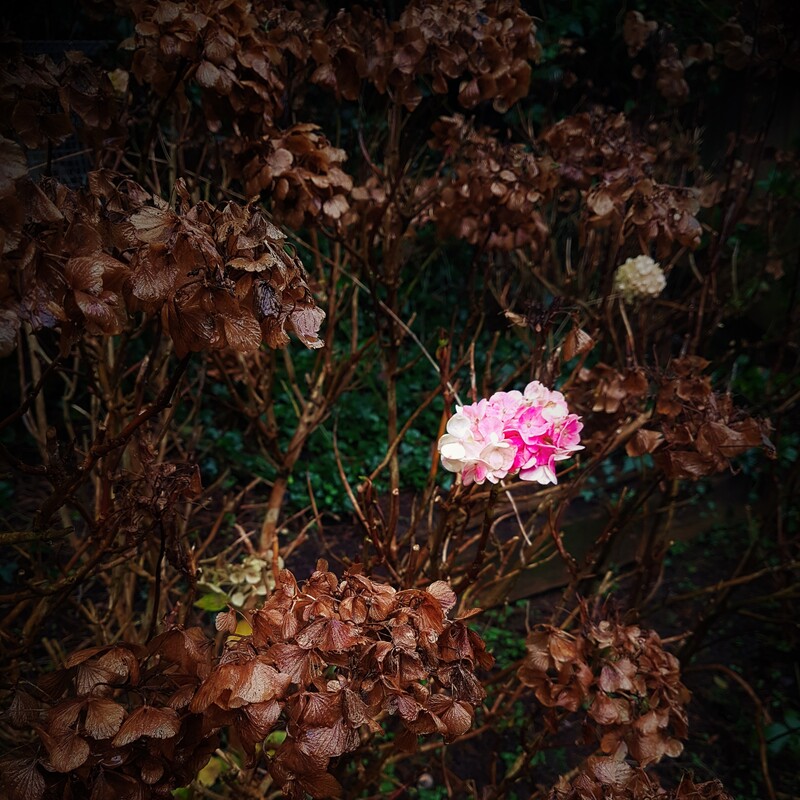

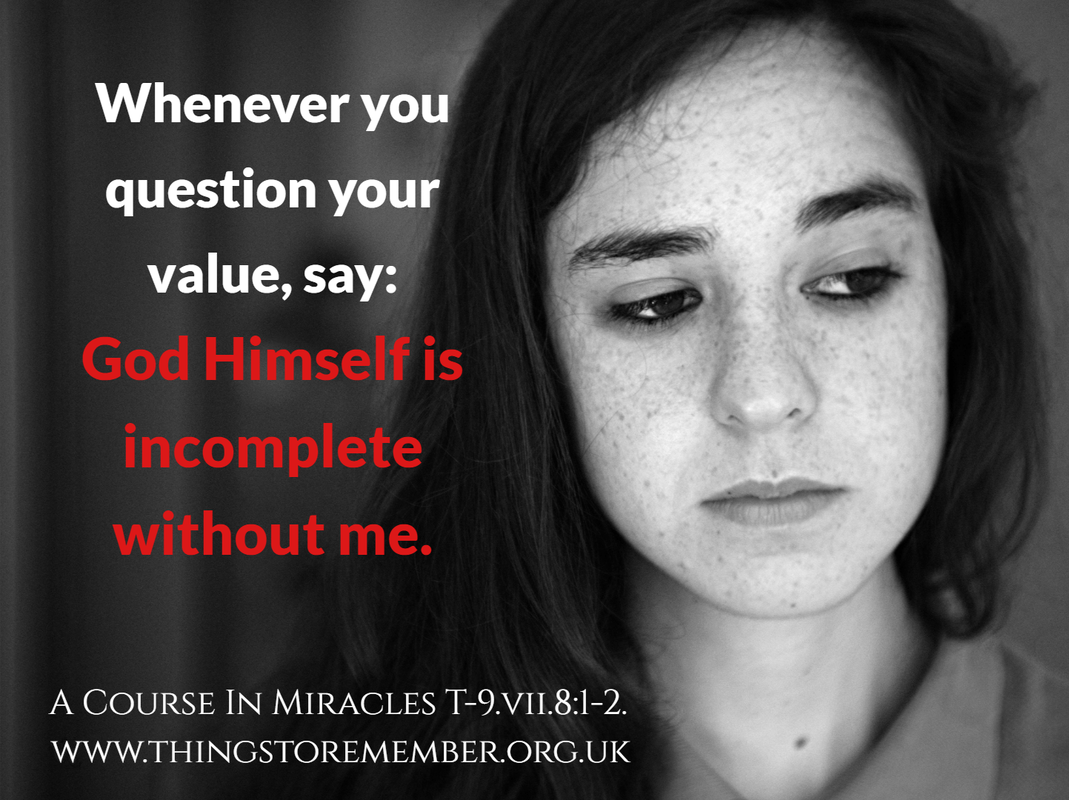
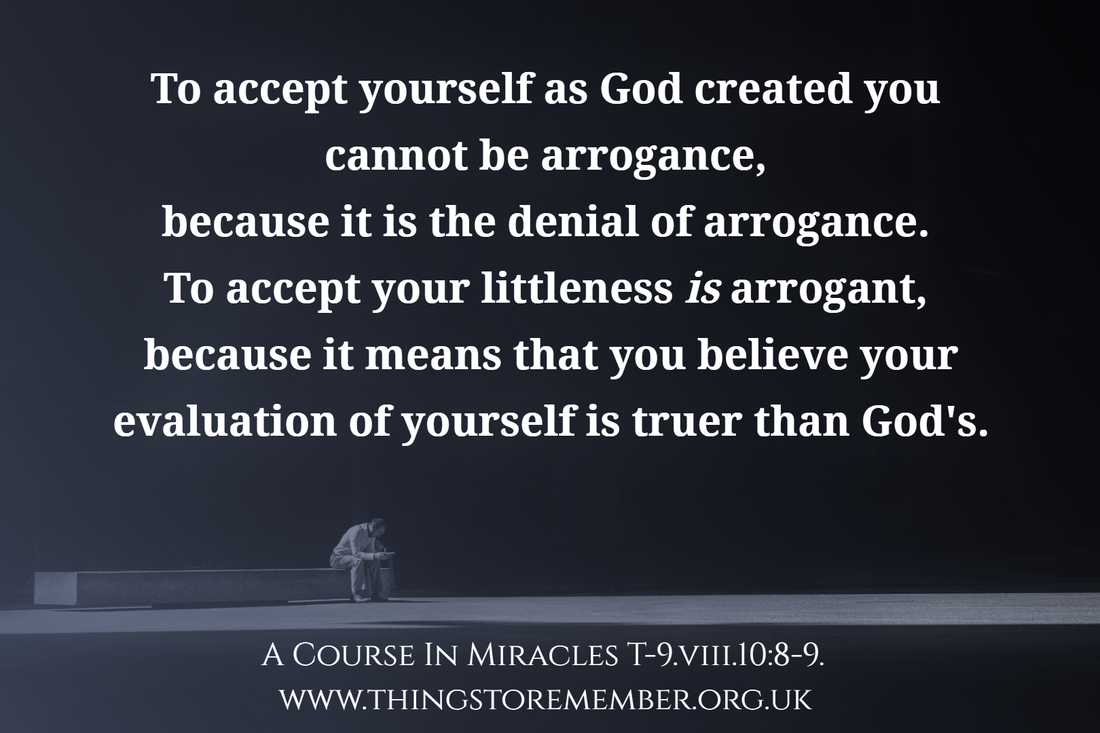
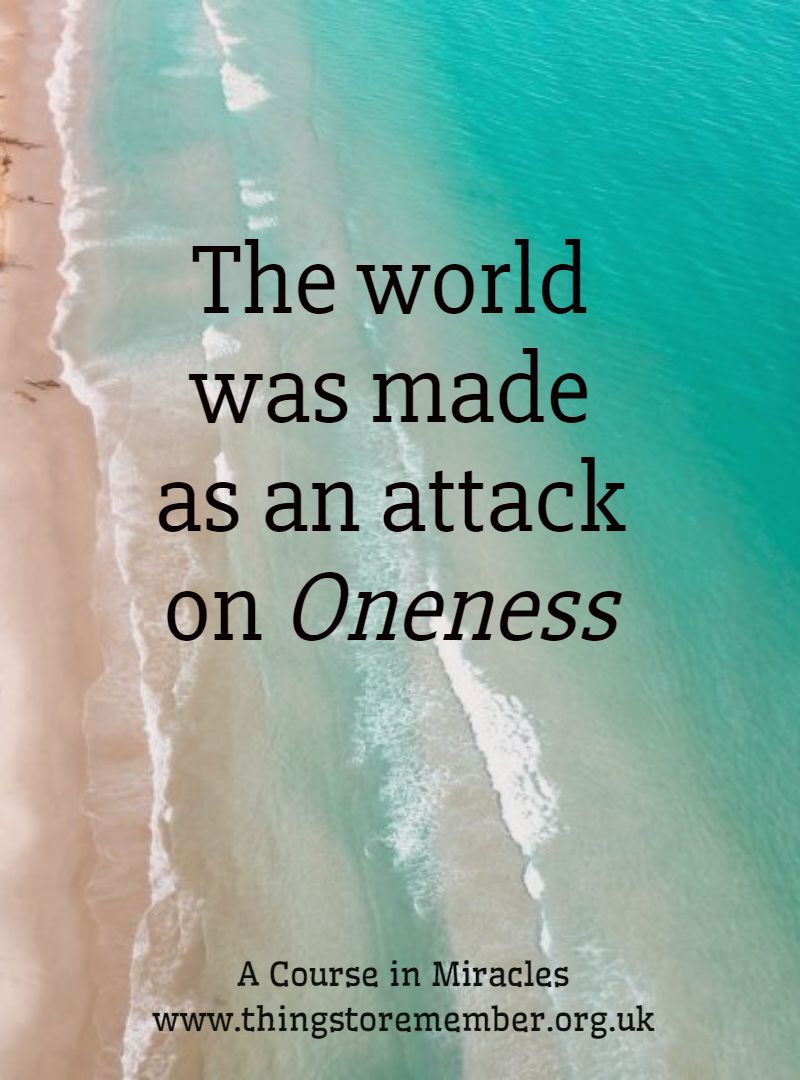
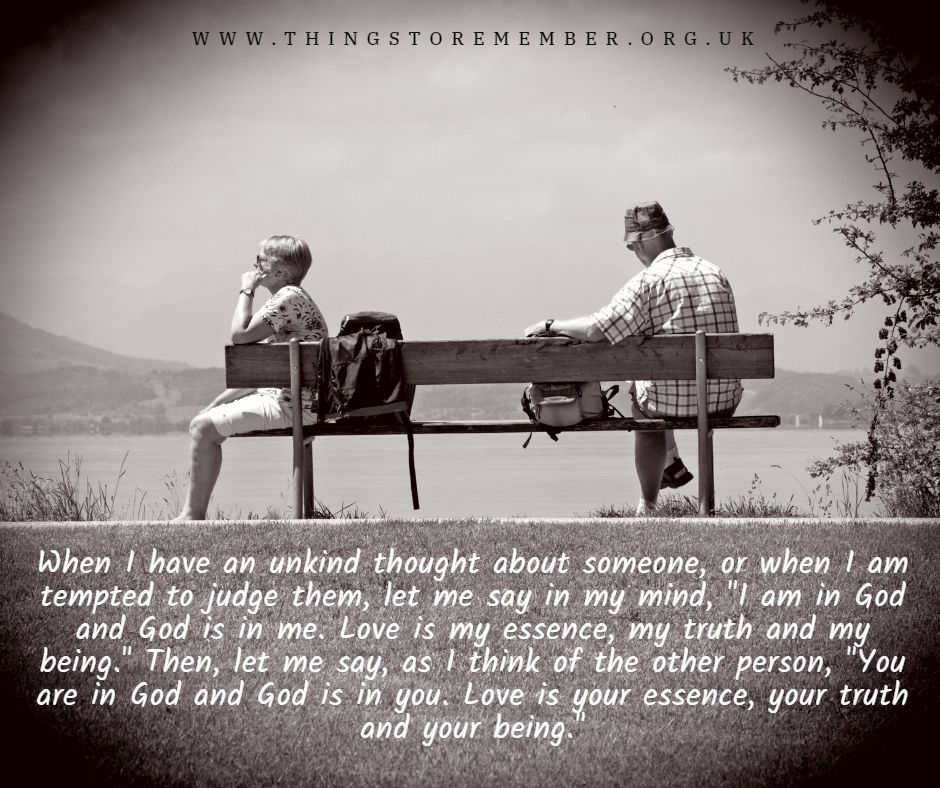
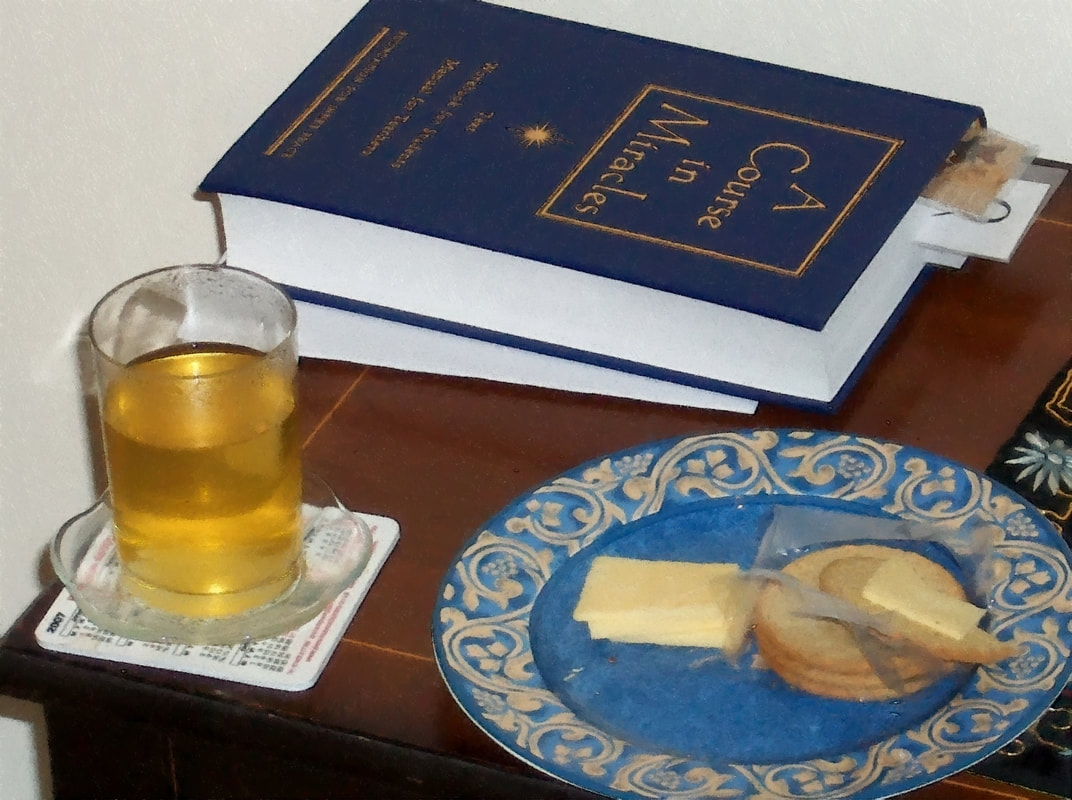

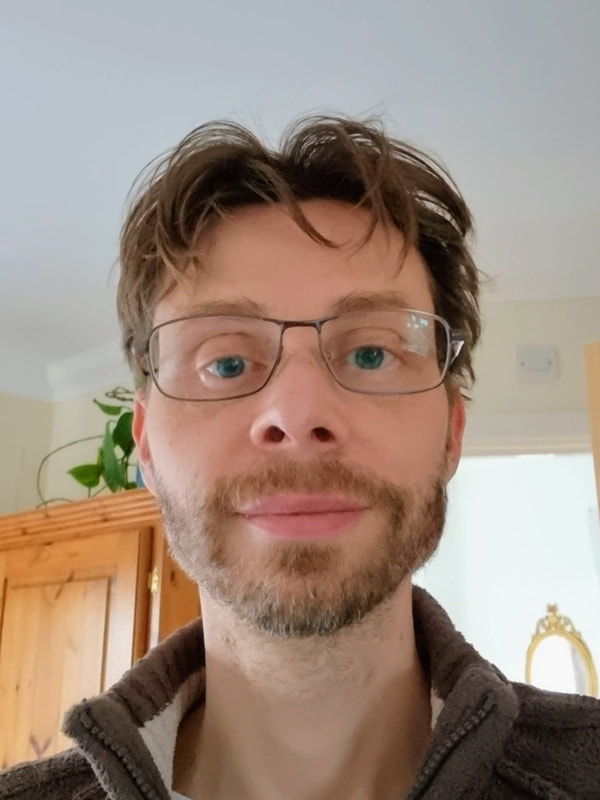
 RSS Feed
RSS Feed

